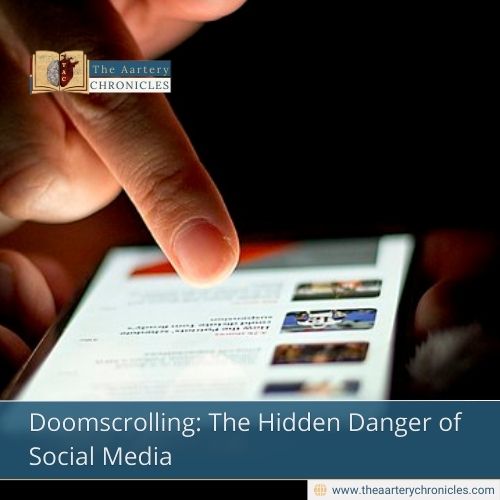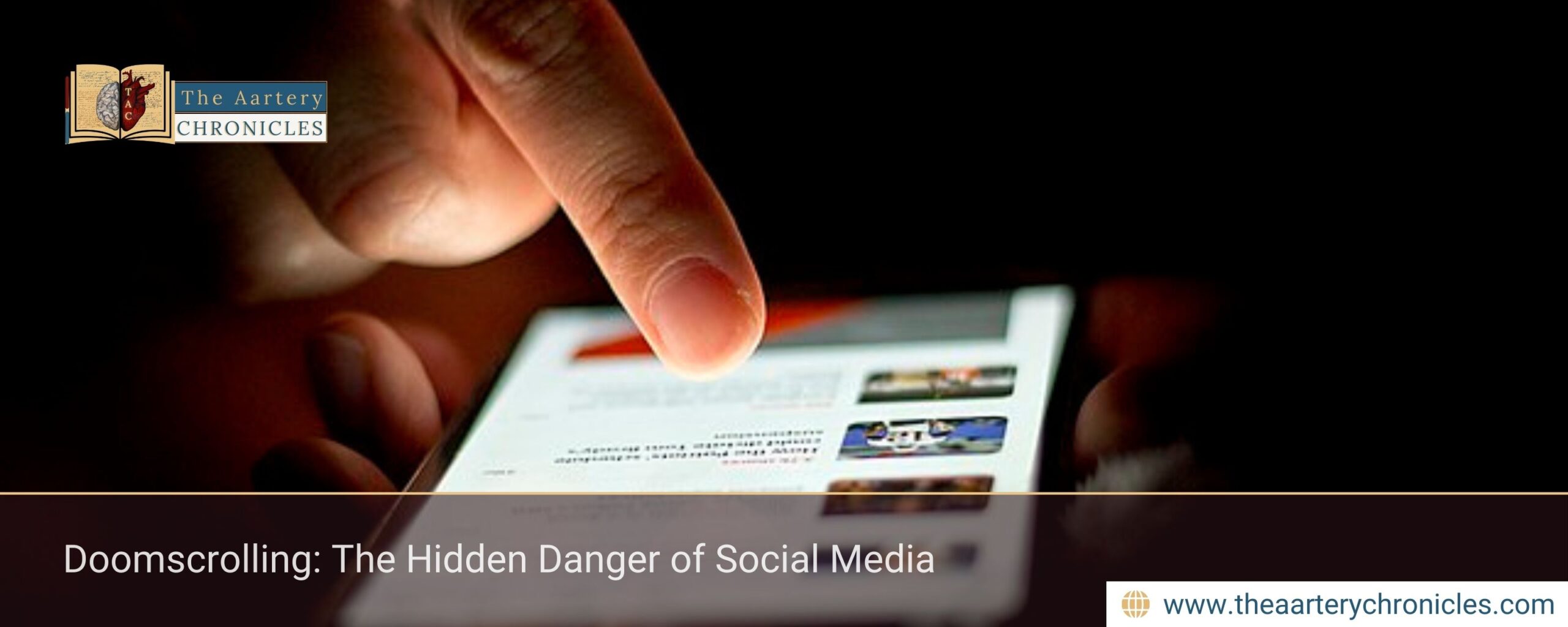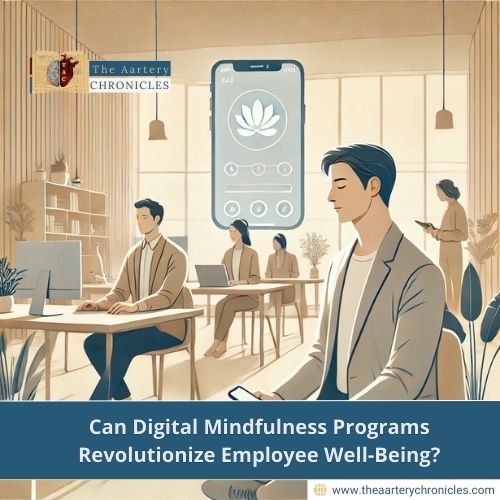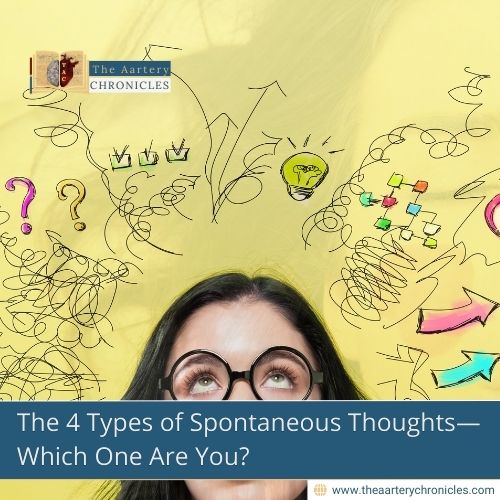

Doomscrolling: The Hidden Danger of Social Media
Our screens have become an integral part of our lives, perhaps more than our relationships. Be it the time we invest daily, from our waking up in the mornings to the last thing we do before sleeping, there is absolutely no escaping it. They say too much of everything is bad for us; the same holds for excessive screen time.
The Psychology Behind Constant Scrolling
Doomscrolling is when we scroll excessive negative content across social media platforms, without interaction. It is known to impact our health adversely. Doomscrolling can be interpreted as scrolling towards doom, literally! Picture this – While scrolling, you come across an article citing “the possibility of an upcoming war” This scares you, and you keep searching for more related news across social media. This is what doomscrolling is about – worrying about the possibilities that are not going to turn into reality. It is just a possibility, yet you stress and worry about it and are glued to your screen for more snippets of information. This information overload is what we do not require at all.
Origin of Doomscrolling: The COVID-19 Era
The word ‘doomscrolling’ was coined in 2020 after the onset of the COVID-19 pandemic. People scrolled for more and more news updates regarding the spread, rise and fatalities associated with COVID-19 patients. There was an air of fear, alarm and uncertainty in those trying times.
As we near the end of 2025, our bodies have become attuned to living with constant stress. Doomscrolling means we are sedentary for prolonged time periods, which negatively impacts our physical and psychological health.
The reasons for suicides are numerous, but there is a dearth of effective combating measures.
Studies and Research
- A research review published in the Applied Research in Quality of Life in April 2023 suggested that doomscrolling is associated with “worst mental well-being and life satisfaction” after analysis of three separate studies.
- A study dated April 2024, published in Computers in Human Behaviour found that employees who doomscrolled at work had lowered spans of attention and productivity.
- Another study, dated August 2024, published in Computers in Human Behaviour, further confirmed that doomscrolling leads to enhanced levels of panic and dread.
- Research led by Professor Emma Duerden, Canada’s Research Chair in Neuroscience and Learning Disorders, was carried out on adolescents aged 12 to 17 years (who did not have any prior mental health issues). The results showed that 45% of these adolescents showed psychiatric symptoms that warranted further medical evaluation.
- The statistics of NHS Data from the UK show that 20% children (aged 8 to 16 years) showed probabilities of mental disorder in 2023, as compared to the statistics showing 13% in 2017.
- Studies also show that teens spend 15 hours per day scrolling.
- A study published in ScienceDirect – a peer-reviewed journal, indicates that negative news is often traumatic and the news coverage of these events can cause acute stress, PTSD, anxiety and depression.
- A study carried out among 800 university students from the US and Iran shows that they felt life is meaningless and they fostered negative emotions towards humanity.
[1] According to Dr Aditi Nerurkar, a lecturer in the Division of Global Health and Social Medicine at Harvard Medical School, too much time spent on doomscrolling gives us “popcorn brain” – an actual biological phenomenon where our brain is constantly being “popped” with information, i.e. overload of information. This overstimulation makes our real life feel slower in comparison to the virtual world.
Why Do We Doomscroll
In today’s world, it is essential to be abreast and informed of the goings-on in the world. Knowledge is power, as they say. Studies have shown that when we get too engrossed in a particular news item, we tend to keep refreshing it, over and over, and, in the bargain, we ignore our daily activities, without realising it.
- If there is some distressing news, we tend to seek more and more updates on it, which depresses us more. In this process, we tend to avoid the other related news that is not upsetting or depressing.
- While scrolling for positive news, we may come across some negative news that may upset us.
- In order to stay informed, we do not realise that we instinctively begin scrolling, without a second thought, thereby making it a habit, or should we say, something like addiction?
- If you are feeling despondent, you begin scrolling to feel better, perhaps. This is the worst you can do, as mindless scrolling will make you more depressed.
- If we come across a particular news item, we tend to overthink and imagine the worst outcome, increasing our panic and anxiety.
- The fear of missing out (FOMO) makes us scroll as we do not want to feel left out due to a lack of information.
- Rupal Sonpal
- Health News and Updates
- 14 September 2025
- 11:00








